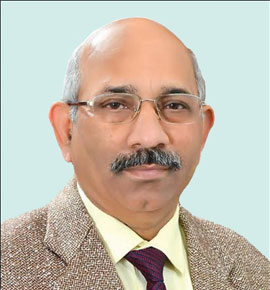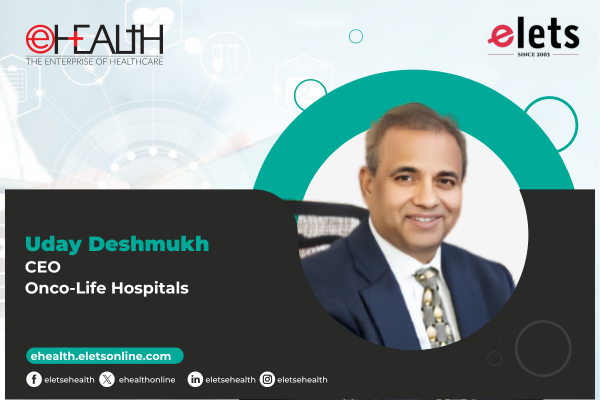

Dr K K Kalra, CEO, National Accreditation Board for Hospitals (NABH) and Healthcare Providers, Delhi
Accreditation provides quality and safety of healthcare services informs Dr K K Kalra, CEO, National Accreditation Board for Hospitals (NABH) and Healthcare Providers, Delhi, while in conversation with Prathiba Raju for Elets News Network (ENN).
Why is the NABH accreditation important for the blood banks?

There are lot of hazards still prent in the blood transfusion services. Blood transfusion should be made safe as it is a patient safety issue. Getting license from Drugs and Cosmetics Act is a must and it is the first step, which will cover the minimum requirements of any hospital, clinic or a blood bank. Though NABH accreditation is not mandatory it has a set of standards, which ensures management, accommodation, personnel, equipment, process control, performance improvement, document control, records, internal audit and management review. From proper screening of donors, testing and how the blood is collected. The NABH accreditation is a risk-reduction activity; it complies with standards and is intended to reduce the risk of adverse outcomes and improve patient safety. Accreditation assures high quality of healthcare and patient safety.

How many hospitals/blood banks are under NABH accreditation?

When it comes to hospital accreditation we grant it for each and every department like laboratories blood banks and radiology department. Hospitals which are accredited under NABH are 315 this includes private, public hospitals. But nowadays we give stand alone accreditation for blood banks too under NABH Blood Bank Program. Out of 2060 blood banks in the country, 74 are accredited but many are yet to come forward. Accreditation in our country as on date is voluntary and it is not made compulsory. Quality can be up to the mark when its a volunteer process as each healthcare organisation approach us in there own interest.

Although selling blood and paying donors is illegal, a vast illegal market proliferates. How to tap them?
We do not have a role in controlling people who indulge in selling blood or paying blood donors directly. But we have few standards which deals with ethical practices and we definitely take action against any hospital or blood banks which are into unethical practices. The healthcare organisations be it hospitals, blood banks once receive the accreditation are under constant surveillance. The validity period spanning for three years we have check in first three months and before three years and do surprise inspection in-between. They need to submit monthly quality indicator data to the NABH secretariat. Apart from this, each month we take out a draw from all accredited hospitals and conduct surprise assessment to ensure the maintenance of quality standards in accredited healthcare organisations.
What factors NABH consider while assessing a blood bank hospital?
NABH standards address most of the processes in healthcare delivery system. They are related to safety viz medication use, infection control, surgery and anaesthesia, transfusions, restraint and seclusion, staffing and staff competence, fire safety, medical equipment, emergency management and security. These standards also include specific requirements like the hospital needs to tell a patient about the outcomes of the care provided to the patient and its outcomes.
Out of the 311 hospitals accredited Andhra Pradesh stands first with 46, Delhi second with 43, Karnataka 28. While Bihar, Himachal Pradesh the north eastern states like Mizoram, Manipur do nothave any accreditation.
How will accreditation of healthcare sector help the public?
Accreditation offers an assurance to the patients that particular hospital or blood banks offer quality healthcare, addresses patients rights. It strengthens quality, treatment, risk reduction and patient safety efforts. It provides quality manpower. Now even the health insurance companies are also considering to empanel only NABH accreditation. Out of ten chapters, five focuses on patients and their concerns. We organise seminars and workshops to familiarise the healthcare industry with added advantages and benefits of NABH accreditation. We also ask them to display there logos to the public and make them aware the NABH accreditation provides quality health. Moreover NABH wants the healthcare delivery system to operate in more systematic and professional way.
Be a part of Elets Collaborative Initiatives. Join Us for Upcoming Events and explore business opportunities. Like us on Facebook , connect with us on LinkedIn and follow us on Twitter , Instagram.
"Exciting news! Elets technomedia is now on WhatsApp Channels Subscribe today by clicking the link and stay updated with the latest insights!" Click here!
















